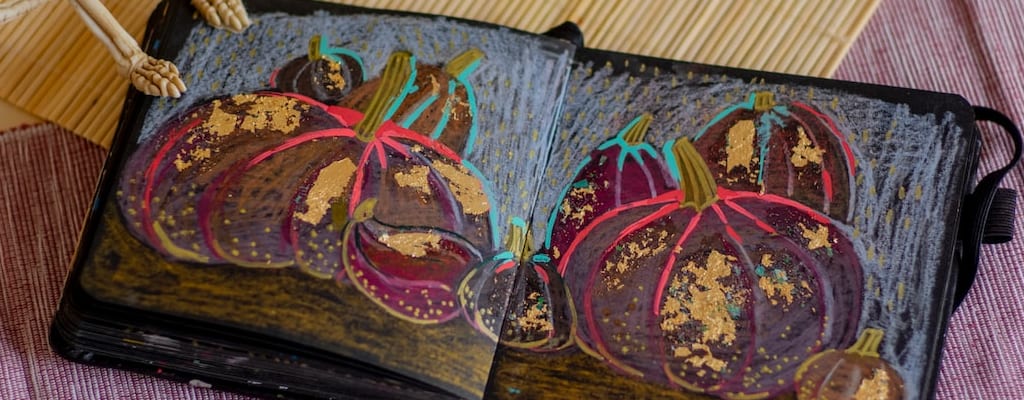rough out: Idiom Meaning and Origin
What does ‘rough out’ mean?
The idiom "rough out" means to create a preliminary or unfinished version or plan of something, typically a design, drawing, or outline. It implies a quick and approximate representation that will be refined or polished later.

Idiom Explorer
The idiom "thrash out" means to discuss or debate a topic in a thorough and determined manner, often to reach a resolution or agreement.
The idiom "scratch together" means to gather or collect something, often money or resources, in a hasty or improvised manner. It implies that the process may be difficult or challenging, as if one is scraping or scrambling to obtain what is needed.
The idiom "scratch the surface" means to only uncover or reveal a small part or a superficial level of something, without fully understanding or exploring its depth or complexity.
The idiom "rustle up" means to quickly and resourcefully find or prepare something, often food. It implies a certain level of improvisation and efficiency in obtaining what is needed, usually in a short amount of time.
The idiom "run through" means to quickly review or discuss something, often in a casual or brief manner. It can also refer to the act of rehearsing or practicing something, such as a performance or a speech.
The idiom "run rings around" means to easily outperform or outdo someone in a given activity or task. It implies being much more skilled or efficient than the person or group being compared to. The phrase originates from the idea of running in circles around someone or something, suggesting a clear superiority.
The idiom "rough justice" means to administer justice in a harsh or unfair manner, without proper consideration of the facts or the law.
The idiom "roughen up" means to make something or someone rough or more aggressive, usually by adding force or intensity. It can also refer to making something appear more rugged or worn.
The idiom "rough around the edges" means that someone or something may appear imperfect or unrefined, but still has potential or qualities that make them interesting or valuable.
The idiom "rough and ready" means something or someone that is not refined or polished, but is practical and effective in a basic way.
FAIL
The idiom "rough out" is a commonly used expression in the English language. This phrase has multiple meanings and can be used in various contexts.
One common usage of the idiom "rough out" is in reference to sketching or creating a preliminary version of something. In this sense, it is often used in the context of artwork, design, or construction. When someone "roughs out" a sketch, they are creating a rough or initial draft, which will later be refined or completed.
Another meaning of "rough out" is related to navigating a difficult or challenging situation. It can signify the process of enduring or getting through a difficult period or circumstance. This could be applied to various scenarios, such as overcoming obstacles in a project or dealing with tough times in personal life.
The idiom "roughen up" is closely related to "rough out" and conveys a similar idea. It implies making something more rough or less refined, often through deliberate action. For example, if a piece of wood needs to fit into a tight space, it may need to be roughened up by sanding or shaving to make it fit.
The idiom "rough around the edges" is also related to "rough out" and suggests that something or someone is not perfect or polished. It implies a lack of refinement or a rough appearance or manner. This phrase is often used to describe a person's character or behavior, indicating that they are not entirely polished or sophisticated.
The idiom "rough out" can also be used to describe a person's initial attempt or approach at doing something. It is often associated with a lack of finesse or polish, indicating an unfinished or unrefined result. For example, someone might say, "I roughed out a plan for the presentation, but it still needs a lot of work."
In addition, "rough out" can be used to describe the act of creating a general outline or structure before adding more details. This usage is common when discussing writing a document, piece of literature, or even a speech. It implies the need to establish an overall framework before delving into the specifics.
Etymologically speaking, the origins of the idiom "rough out" are unclear. It is difficult to trace the exact source or development of this particular phrase. The use of "rough" as an adjective meaning unfinished or incomplete can be traced back to the early 14th century, while the verb "out" has been used in various senses since the 13th century. However, the combination of the two words to create the idiom "rough out" seems to have developed organically within the English language over time.
The idiom "rough out" has multiple meanings and applications, ranging from creating preliminary versions of something to navigating difficult situations. It can also describe a person's initial attempt or the process of outlining before adding details. While the exact origins of this idiom remain uncertain, its usage in everyday language is well-established.
The versatility and adaptability of the idiom "rough out" ensure its continued relevance in the English language, offering both a sense of completeness and the potential for further exploration.
Example usage
Examples of how the idiom rough out can be used in a sentence:
- I'll give you a rough outline of the project so you have an idea of what we're working on.
- The sculptor roughed out the basic shape of the statue before refining the details.
- She roughed out a draft of her essay before starting the final version.
More "Improve" idioms



